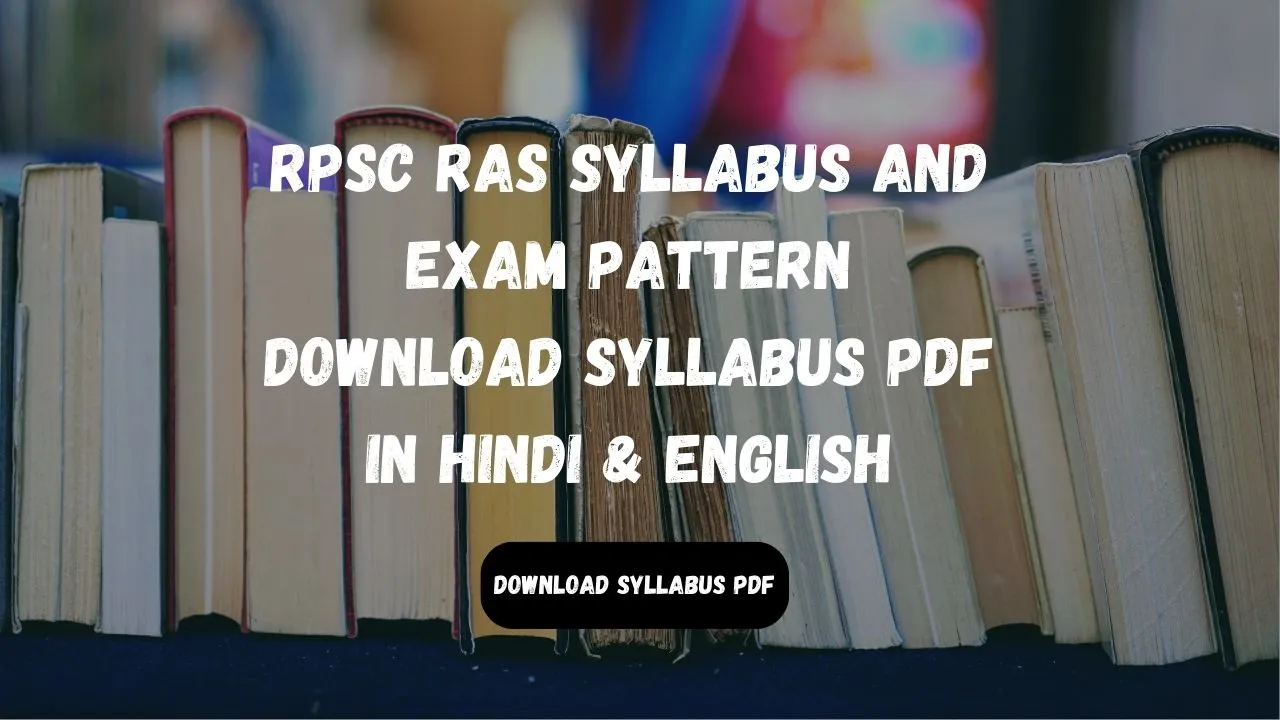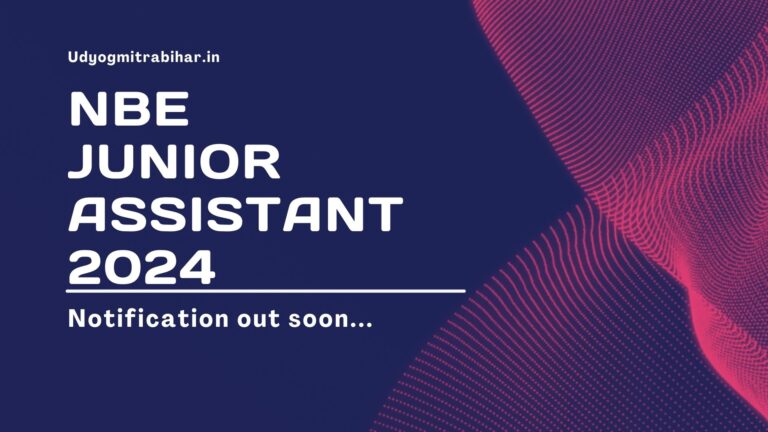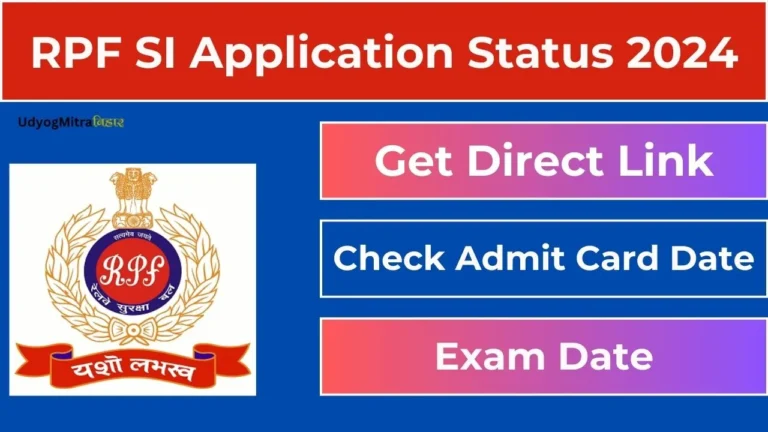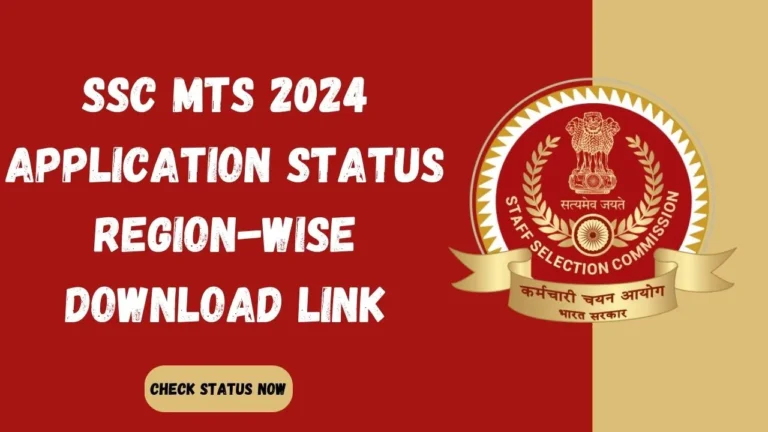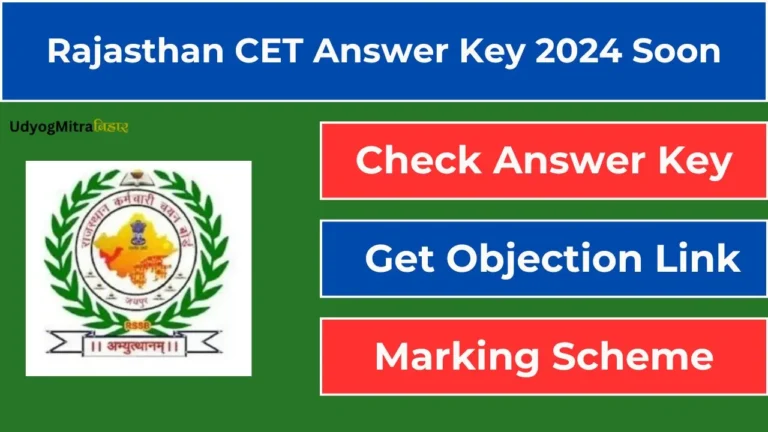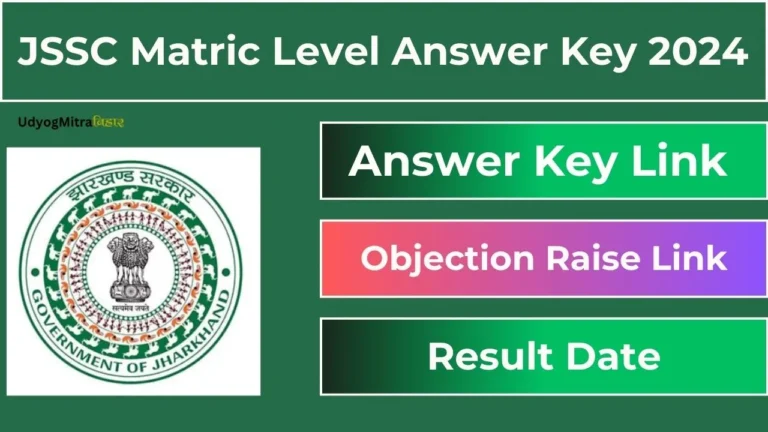The Rajasthan Public Service Commission (RPSC) organizes the Combined Competitive Examination for the Rajasthan Administrative Service (RAS) posts. Candidates aiming for administrative roles should start preparing with the updated RPSC RAS Syllabus and Exam Pattern. Be sure to bookmark this page to stay updated on all relevant topics for the upcoming RPSC RAS exam.
Contents
- 1 RPSC RAS Exam Pattern 2024
- 2 RPSC RAS Syllabus 2024
- 2.1 RPSC RAS Prelims Syllabus 2024
- 2.1.1 History, Art, Culture, Literature, Tradition & Heritage of Rajasthan Syllabus
- 2.1.2 Geography of India Syllabus
- 2.1.3 Indian History Syllabus
- 2.1.4 Indian Constitution, Political System, and Governance Syllabus
- 2.1.5 Indian Economy & Its Aspects Syllabus
- 2.1.6 Economy of Rajasthan Syllabus
- 2.1.7 Political and Administrative System of Rajasthan Syllabus
- 2.1.8 Science & Technology Basics of Everyday Science Syllabus
- 2.1.9 Reasoning & Mental Ability Syllabus
- 2.2 RPSC RAS Mains Syllabus 2024
- 2.1 RPSC RAS Prelims Syllabus 2024
- 3 FAQs
RPSC RAS Exam Pattern 2024
The RPSC RAS Exam will follow a two-stage process: Prelims and Mains. The Preliminary exam is qualifying in nature, while the main exam is selective. Candidates who pass both the Prelims and Mains will move on to the final stage, which is the personal interview round. This will be the last step in the selection process. Below is a detailed breakdown of the RPSC RAS Exam Pattern.
RPSC RAS Prelims Exam Pattern 2024
The preliminary exam serves as a screening test, and only a limited number of candidates who pass this stage will be invited to take the main exam.
- The RPSC RAS Prelims will feature multiple-choice questions, totaling 200 marks.
- The questions will be of graduation-level difficulty.
- The Prelims will have only one paper, focused on General Knowledge.
- Candidates who pass the Prelims will receive an admit card for the Mains Exam.
- The marks obtained in the Prelims won’t be included in the final merit list since it is purely for screening purposes to select candidates for the Mains Exam.
| Subject | No. of Questions | Marks | Duration |
| General Knowledge & General Science | 150 | 200 | 3 Hours |
RPSC RAS Mains Exam Pattern 2024
The candidates who pass the Prelims will be eligible to sit for the Mains exam, with the number of candidates selected being 15 times the total number of vacancies.
- The Mains Exam will be descriptive in nature.
- It will consist of 4 compulsory papers.
- The difficulty level of the General Studies (GS) papers will be at the graduation level, while the General English and General Hindi papers will be set at a higher secondary level.
- Marks scored in the Mains Exam will contribute to the final merit list.
- The exam will include 2 short questions, 5 medium-length questions, and 10 long questions.
| RPSC RAS Mains Paper | Total Marks | Total Time |
| Paper-1: General Studies-I | 200 marks | 3 hours |
| Paper-2: General Studies-II | 200 marks | 3 hours |
| Paper-3: General Studies-III | 200 marks | 3 hours |
| Paper-4: General Hindi and General English | 200 marks | 3 hours |
| Total | 800 marks |
RPSC RAS Syllabus 2024
The detailed, topic-wise RPSC RAS Syllabus is outlined in this section. Candidates preparing for the RPSC Administrative Services exam should ensure they cover all the topics listed, as each one is equally important. Be sure to bookmark this page and take separate notes for each topic, as this will be very useful during your revision.
RPSC RAS Prelims Syllabus 2024
The RPSC RAS Prelims Exam consists of a single paper focused on General Knowledge and General Science. This stage is used to shortlist candidates for the Mains Exam. The syllabus for the Prelims covers various topics, including history, art and culture, geography, the constitution, the economy, and more.
History, Art, Culture, Literature, Tradition & Heritage of Rajasthan Syllabus
This section will provide comprehensive historical information about Rajasthan, including its culture, heritage, music, tourist attractions, events, and more. Below are the topics that will be covered.
- Cultural Practices: Insights into Rajasthani culture, traditions, and heritage.
- Historical Landmarks: Notable historical sites in Rajasthan’s past.
- Freedom Movement: Overview of the political awakening and integration during the freedom struggle.
- Local Dialects: Exploration of local dialects, fairs, festivals, folk music, and dances.
- Architectural Features: Distinct characteristics of architecture, including forts and monuments.
- Arts and Handicrafts: Examination of Rajasthani arts, paintings, and handicrafts.
- Literature: Important contributions to Rajasthani literature.
- Religious Influences: Key religious movements, saints, and local deities in Rajasthan.
- Tourist Attractions: Major tourist destinations in the state.
- Notable Personalities: Prominent figures from Rajasthan’s history and culture.
Geography of India Syllabus
This section will address questions related to the geography of Rajasthan, India, and the world, covering the following topics for the RPSC RAS Prelims Exam:
Indian Geography
- Overview of Indian geography
- Agriculture and related activities
- Key minerals, including iron, manganese, coal, oil, gas, and atomic minerals
- Major physical features and physiographic divisions
- Primary industries and industrial growth
- Natural resources available in India
- Environmental challenges and ecological issues
- Major transportation corridors
Geography of Rajasthan
- Overview of Rajasthan’s geography
- Physical features and physiographic divisions
- Natural resources of Rajasthan, including climate, vegetation, forests, wildlife, and biodiversity
- Significant irrigation projects
- Mines and minerals in the state
- Population dynamics
- Key industries and industrial potential
World Geography
- General physical features of the world
- Environmental and ecological issues globally
- Wildlife and biodiversity around the world
- International waterways
- Major industrial regions worldwide
Indian History Syllabus
This section will test the candidate’s knowledge of India’s ancient, medieval, and modern history. Key topics include:
Ancient & Medieval Period
- Key features and major landmarks of ancient and medieval India
- Art, culture, literature, and architecture of these periods
- Important dynasties and their administrative systems
- Socio-economic conditions during ancient and medieval times
- Significant movements of the era
Modern Period
- Modern Indian history from the mid-18th century to the present, including major events, personalities, and issues.
- The Indian freedom struggle and national movement, covering its various stages and key contributors from different regions.
- Social and religious reform movements of the 19th and 20th centuries.
- Post-independence consolidation and reorganization of India.
Indian Constitution, Political System, and Governance Syllabus
This section covers important topics related to the Indian Constitution, political system, and governance. Candidates should be familiar with the historical background and developments of these subjects.
Development & Indian Constitution
- Government of India Acts of 1919 and 1935
- Constituent Assembly and the drafting of the Constitution
- Key features of the Indian Constitution, including the Preamble, Fundamental Rights, Directive Principles of State Policy, and Fundamental Duties
- Federal structure and constitutional amendments
- Emergency provisions
- Public Interest Litigation (PIL) and judicial review
Indian Political System and Governance
- Nature of the Indian State and Democracy
- Reorganization of states and coalition governments
- Political parties and national integration
- Structure and Roles of the Union and State Executive, Legislative, and Judiciary
- Key institutions like the President, Parliament, Supreme Court, Election Commission, Comptroller and Auditor General, Planning Commission, National Development Council, Central Vigilance Commission (CVC), Central Information Commission, Lokpal, and National Human Rights Commission (NHRC)
- Local self-government and Panchayati Raj
Public Policy & Rights
- National public policy as a welfare state
- Various legal rights and the Citizen Charter
Indian Economy & Its Aspects Syllabus
This section will focus on questions related to India’s current economic status, its challenges, and ways to improve it. The topics covered include:
- Basic Economic Concepts: Understanding the fundamentals of economics.
- Budgeting, Banking, and Public Finance: Knowledge of budgeting, national income, banking, and public finance.
- Growth and Development: Concepts, tools, and uses in administration, including accounting practices.
- Stock Exchange and Share Market: Overview of the stock market and fiscal and monetary policies.
- Subsidies and Public Distribution: Insights into subsidies and the public distribution system.
- e-Commerce: Understanding its role in the economy.
- Inflation: Its concept, impact, and methods of control.
- Economic Development and Planning: Study of Five-Year Plans, their objectives, strategies, and achievements.
- Major Economic Sectors: Current status, issues, and initiatives in agriculture, industry, services, and trade.
- Economic Problems and Government Actions: Examination of major economic problems and government reforms, including liberalization efforts.
- Human Resource and Economic Development: The role of human resources in development, including the Human Development Index.
- Poverty and Unemployment: Concepts, types, causes, and solutions, along with current government schemes.
- Social Justice and Empowerment: Provisions for the empowerment of weaker sections of society.
Economy of Rajasthan Syllabus
Candidates appearing for the RPSC RAS Exam must have a strong understanding of Rajasthan’s economy. The key topics covered include:
- Overview of Rajasthan’s Economy: A broad look at the state’s economic structure.
- Key Sectors: Issues related to the agriculture, industrial, and service sectors, focusing on growth, development, and planning.
- Infrastructure and Resources: Examination of the state’s infrastructure and available resources.
- Major Development Projects: Significant development initiatives in Rajasthan.
- Government Programs and Schemes: Welfare schemes for various groups, including SC/ST, backward classes, minorities, disabled persons, destitute, women, children, the elderly, farmers, and laborers.
Political and Administrative System of Rajasthan Syllabus
Candidates aiming for the Rajasthan Administrative Services must have a thorough understanding of the state’s political and administrative systems. Key topics include:
- Governor: Role and responsibilities.
- Chief Minister: Powers and functions.
- State Assembly: Structure and functioning of the legislative body.
- High Court: Judiciary’s role in Rajasthan.
- Rajasthan Public Service Commission: Functions and duties.
- District Administration: Overview of administrative functions at the district level.
- State Human Rights Commission: Purpose and responsibilities.
- Lokayukta: Role in addressing corruption and grievances.
- State Election Commission: Conduct of state elections.
- State Information Commission: Oversight of public information and transparency.
- Public Policy, Legal Rights, and Citizen Charter: Key legal rights and policies for citizens.
Science & Technology Basics of Everyday Science Syllabus
For the RPSC RAS Exam 2024, candidates need a solid understanding of fundamental concepts in science and technology. The topics include:
- Electronics, Computers, and ICT: Basics of electronics, computer science, and information and communication technology.
- Space and Defense Technology: Understanding space technology, satellites, and defense advancements.
- Nanotechnology: Overview of nanotechnology and its applications.
- Human Body, Food, and Health: Knowledge of human anatomy, nutrition, and healthcare.
- Environmental Changes: Impact of ecological and environmental changes.
- Biodiversity and Biotechnology: Study of biodiversity, biotechnology, and genetic engineering.
- Agriculture and Allied Sectors: Focus on agriculture, horticulture, forestry, and animal husbandry, particularly in Rajasthan.
- Development of Science and Technology in Rajasthan: Progress and initiatives in the field of science and technology within the state.
Reasoning & Mental Ability Syllabus
This section will test the candidate’s reasoning skills and mental ability to solve complex problems. Key topics to focus on include:
- Logical Reasoning: Deductive, inductive, and abductive reasoning, covering topics like:
- Statement and assumptions
- Statement and argument
- Statement and conclusion
- Courses of action
- Analytical Reasoning: Ability to analyze and interpret data logically.
- Mental Ability: Questions on number and letter series, odd one out, coding-decoding, relationships, shapes, and patterns.
- Basic Numeracy: Fundamental mathematical and statistical concepts, including:
- Number system
- Order of magnitude
- Ratio and proportion
- Percentages
- Simple and compound interest
- Data Analysis: Interpretation of data presented in tables, bar diagrams, line graphs, and pie charts.
RPSC RAS Mains Syllabus 2024
The RPSC RAS Mains Exam 2024 consists of four compulsory papers. There are no optional papers, and candidates must attempt all four. The syllabus is extensive and is divided as follows:
- Papers I, II, III: Focus on General Knowledge and General Science.
- Paper IV: Tests proficiency in General English and Hindi.
Paper-I: General Knowledge and General Studies
This paper is divided into three key sections:
- History: Covers historical aspects of India and Rajasthan.
- Economics: Focuses on economic principles, systems, and current economic status.
- Sociology, Management, Accounting & Auditing: Topics related to social systems, principles of management, and basic accounting and auditing practices.
Candidates should prepare thoroughly by focusing on the specific topics outlined for each section.
Unit-I History Syllabus
Part A: History, Art, Culture, Literature, Tradition, and Heritage of Rajasthan
- Overview of major events in Rajasthan’s history, from prehistoric times up to the late 18th century, covering important dynasties, their governance, and revenue systems.
- Key developments of the 19th and 20th centuries, including peasant and tribal movements, political awakening, freedom struggle, and the process of state integration.
- Exploration of Rajasthan’s cultural heritage, including performing and fine arts, architecture, handicrafts, fairs, festivals, folk music, and dance traditions.
- Important contributions to Rajasthani literature, along with an understanding of its dialects.
- Study of saints, folk deities, and notable personalities from Rajasthan.
Part B: Indian History and Indian Heritage
- Examination of fine arts, performing arts, architecture, and literature from the Indus Valley Civilization to the British period.
- Study of religious movements and philosophies in ancient and medieval India.
- Analysis of modern Indian history from the early 19th century to 1965, focusing on key events, figures, and significant issues.
- Detailed look at the Indian National Movement, its various phases, prominent contributors, and regional influences.
- Discussion on socio-religious reform movements of the 19th and 20th centuries.
- Post-independence challenges, including the integration of princely states and linguistic reorganization of states.
Part C: History of the Modern World (up to 1950 AD)
- Study of the Renaissance and Reformation periods.
- The Age of Enlightenment and the Industrial Revolution.
- Examination of imperialism and colonialism in Asia and Africa.
- The global impact of the two World Wars.
Unit-II Economics Syllabus
Part A: Indian Economy
- Major Sectors of the Economy: Current status, challenges, and initiatives in agriculture, industry, and services.
- Banking: Understanding money supply and high-powered money; the role and functions of central and commercial banks, issues such as non-performing assets (NPA), financial inclusion, and an overview of monetary policy—its concepts, objectives, and tools.
- Public Finance: Tax reforms in India (direct and indirect taxes), issues related to subsidies and cash transfers, and a review of India’s recent fiscal policy.
- Recent Trends in the Indian Economy: The role of foreign capital and multinational corporations (MNCs), the Public Distribution System (PDS), Foreign Direct Investment (FDI), India’s Exim (Export-Import) policy, the 12th Finance Commission, and poverty alleviation programs.
Part B: World Economy
- Global Economic Issues and Trends: Understanding current global economic challenges and developments.
- International Organizations: The roles of the World Bank, International Monetary Fund (IMF), and World Trade Organization (WTO).
- Economic Classifications: The distinction between developing, emerging, and developed countries.
- India in the Global Context: India’s position and role in the world economy.
Part C: Economy of Rajasthan
- Agriculture and Allied Sectors: Agriculture, horticulture, forestry, dairy, and animal husbandry with a focus on Rajasthan.
- Industrial Sector: Growth patterns and recent trends in Rajasthan’s industrial development, including planning and strategies.
- Service Sector: Recent developments and issues in Rajasthan’s service sector.
- Major Development Projects: Key economic projects in Rajasthan, their goals, and their impact on the state’s economy.
- Public-Private Partnerships (PPP): The role of PPP models in driving economic transformation in Rajasthan.
- Demographic Trends: Understanding Rajasthan’s demographic landscape and its impact on the state’s economy.
Unit-III Sociology, Management, Accounting & Auditing Syllabus
Part A: Sociology
- Sociological Thought in India: Evolution and development of sociological thinking in India.
- Social Values: Key social principles and norms guiding society.
- Caste, Class & Occupation: Examination of the caste system, social classes, and occupational structures.
- Sanskritization: The process of social mobility within the caste system.
- Varna, Ashram, Purusharth, and Sanskar Vyavastha: The ancient Indian social order, stages of life, goals of human life, and ritual systems.
- Secularism: Challenges and issues faced by secularism in society.
- Tribal Communities of Rajasthan: Study of Rajasthan’s tribal groups such as the Bhil, Mina (Meena), and Garasia.
Part B: Management
- Management Concepts: Scope, definition, and core functions of management—planning, organizing, staffing, directing, coordinating, and controlling.
- Decision-Making: Understanding the concept, process, and techniques involved in decision-making.
- Modern Marketing: Overview of marketing principles and the marketing mix, including product, price, place, and promotion.
- Financial Management: Objectives like wealth maximization, and sources of finance (short-term and long-term), capital structure, and the cost of capital.
- Leadership and Motivation: Key leadership theories, motivation, and communication concepts.
- Human Resource Management: Basics of recruitment, selection, employee induction, training and development, and performance appraisal systems.
Part C: Business Administration
- Financial Analysis: Techniques for analyzing financial statements, basic working capital management, and responsibility/social accounting.
- Auditing: Definition, purpose, and key types of audits such as internal control audits, social audits, performance audits, and efficiency audits.
- Budgeting: Fundamentals of different budgeting types and budgetary control systems.
Paper-II General Knowledge and General Studies Syllabus
The RPSC RAS Mains Paper-II syllabus is divided into four units: Logical Reasoning, Mental Ability, and Basic Numeracy, General Science & Technology, and Earth Science (including Ethics and Human Values). Here’s a summary of the unit-wise topics:
Unit-I: Logical Reasoning, Mental Ability, and Basic Numeracy
- Logical Reasoning: Types of reasoning such as deductive, inductive, and abductive. Topics include:
- Statement and Assumptions
- Statement and Argument
- Statements and Conclusion
- Courses of Action
- Analytical Reasoning
- Mental Ability: Includes number series, letter series, identifying the odd one out, coding-decoding, problems on relations, shapes, and their sections.
- Basic Numeracy: Elementary concepts of mathematical and statistical analysis, covering topics like:
- Number System, Order of Magnitude
- Ratio and Proportion, Percentage
- Simple and Compound Interest
- Data Analysis (Tables, Bar diagrams, Line graphs, Pie-charts)
Unit-II: General Science & Technology
- Physics: Covers topics such as motion, laws of motion, work, energy and power, rotational motion, gravitation, simple harmonic motion, and waves. Also includes:
- Properties of matter, electrostatics, current electricity, magnetism
- Ray optics, nuclear physics, and semiconductor devices
- Electromagnetic waves and communication systems
- Technology: Focuses on basic computer concepts, the use of information technology in administration, e-governance, and e-commerce.
- Contributions of Indian Scientists: Emphasis on their role in the development of science.
- Chemistry: Includes states of matter, atomic structure, chemical bonding, molecular structure, equilibrium, thermodynamics, solutions, chemical kinetics, and electrochemistry.
- Biology: Discusses the characteristic features of life, nutrition in organisms, inheritance and variation, human health and diseases, and biotechnology applications. It also includes biodiversity, conservation, and ecosystems.
- Agriculture and Allied Sectors: Focus on agriculture, horticulture, forestry, dairy, and animal husbandry, with a special reference to Rajasthan.
Unit-III: Earth Science (Ethics and Human Values)
- Ethics and Human Values: Includes lessons from the lives and teachings of great leaders, reformers, and administrators.
- Role of Family, Society, and Educational Institutions: Inculcating values in individuals.
- Ethical Concepts: Discusses the concepts of Rit and Rin (duty and debt), duties, and virtues.
- Public and Private Ethics: Focus on ethics in personal and professional relationships, moral and political attitudes of administrators, and the philosophical foundation of integrity.
- Ethics from the Bhagavad Gita: Its role in administration and governance.
- Gandhian Ethics: Exploration of Gandhi’s ethical principles.
- Moral Thinkers and Philosophers: Contributions from both Indian and global moral thinkers and philosophers.
- Psychological Stress Management: Techniques for managing stress.
- Case Studies: Applied case studies on ethical dilemmas.
- Emotional Intelligence: Concepts and their practical applications.
Unit-IV Earth Science (Geography & Geology) Syllabus
The syllabus for Unit-IV covers World Geography, Indian Geography, and the Geography of Rajasthan, divided into three parts:
Part A: World Geography
- Broad Physical Features: Study of the world’s major physical landscapes, including mountains, plateaus, plains, lakes, and glaciers.
- Earthquakes and Volcanoes: Types of earthquakes and volcanoes, their global distribution, and their impact on the environment.
- Geological Time Scale: Overview of Earth’s history through its geological time scale.
- Current Geopolitical Problems: Analysis of contemporary global geopolitical issues.
Part B: Indian Geography
- Broad Physical Features: Study of India’s mountains, plateaus, plains, lakes, and glaciers.
- Major Physiographic Divisions: Overview of India’s distinct geographical regions.
- Climate: Includes the origin of the monsoon, seasonal climatic conditions, rainfall distribution, and the classification of climatic regions in India.
- Natural Resources: Study of India’s water, forest, and soil resources.
- Rocks and Minerals: Classification of rocks and minerals, including their types and uses.
- Population: Covers the growth, distribution, and density of the population, sex ratio, literacy rates, and the distinction between urban and rural populations in India.
Part C: Geography of Rajasthan
- Broad Physical Features: Study of Rajasthan’s mountains, plateaus, plains, rivers, and lakes.
- Major Physiographic Regions: Overview of the key geographical regions of Rajasthan.
- Natural Vegetation and Climate: Understanding of Rajasthan’s vegetation types and climatic conditions.
- Livestock, Wildlife, and Conservation: Focus on the state’s livestock, wildlife species, and conservation efforts.
- Agriculture: Major crops grown in Rajasthan.
- Mineral Resources:
- Metallic Minerals: Types, distribution, industrial uses, and conservation strategies.
- Non-Metallic Minerals: Types, distribution, industrial uses, and conservation methods.
- Energy Resources: Study of conventional and non-conventional energy resources in Rajasthan.
- Population and Tribes: Overview of the population distribution and major tribal communities in Rajasthan.
Paper-III General Knowledge and General Studies Syllabus
RPSC RAS Mains Paper-III is organized into three units: Indian Political System, World Politics and Current Affairs, Public Administration and Management, and Administrative Ethics, Behaviour, and Law. Here’s an overview of the syllabus:
Unit-I: Indian Political System, World Politics, and Current Affairs
- Indian Constitution: Key principles and provisions.
- Ideological Content and Institutional Framework: Study of India’s institutional structures, divided into three parts.
- Political Dynamics: Analysis of political trends and changes in India.
- State Politics in Rajasthan: Focus on the political landscape and governance of Rajasthan.
- World Politics:
- Post-Cold War Era: Emergence of a new world order, U.S. dominance and resistance to it.
- International Organizations: The role of the UN and regional bodies.
- Global Issues: Topics like international terrorism and environmental challenges.
- India’s Foreign Policy: Study of India’s international relations.
- Geopolitical Developments: Strategic and geopolitical developments in South Asia, Southeast Asia, and West Asia, and their impact on India.
- Current Affairs: Review of significant recent events and issues.
Unit-II: Concepts, Issues, and Dynamics of Public Administration and Management
- Administration and Management: Meaning, nature, and significance in both developed and developing societies. Overview of the evolution of public administration as a discipline, with a focus on new public administration and various theories.
- Core Concepts: Power, authority, legitimacy, responsibility, and delegation in public administration.
- Organizational Principles: Concepts like hierarchy, span of control, and unity of command.
- Management Functions: Corporate governance, social responsibility, and new dimensions in public management.
- Civil Services Values: Importance of integrity, impartiality, non-partisanship, dedication to public service, and the relationship between generalists and specialists.
- Legislative and Judicial Control: Methods and techniques for legislative and judicial oversight of administration.
- Rajasthan’s Administrative Structure:
- Role of the Governor, Chief Minister, Council of Ministers, State Secretariat, and Chief Secretary.
- District Administration: Organization and the roles of District Collectors, Superintendents of Police, and Tehsil-level administration.
- Development Administration: Meaning, scope, and characteristics.
- State Commissions and Acts: Including the State Human Rights Commission, State Election Commission, Lokayukta, Rajasthan Public Service Commission, and the Public Service Guarantee Act of 2011.
Unit-III: Administrative Ethics, Behaviour, and Law
Part A: Administrative Ethics
- Ethics: Study of the dimensions of ethics in administration and the distinction between ethics in private and public relationships.
Part B: Behaviour
- Human Behaviour: Topics including intelligence, personality development, learning, motivation, and coping with life changes like stress.
Part C: Law
- Legal Concepts: Understanding core legal principles and contemporary legal issues.
- Land Laws in Rajasthan: A focus on key land-related legislation in the state.
- Crimes Against Women and Children: An examination of laws and protections against these crimes.
Paper-IV General Hindi and General English Syllabus
The RPSC RAS Mains Paper-IV focuses on English and Hindi language skills. The level of difficulty is equivalent to senior secondary level. The paper is divided into three sections: Grammar and Usage, Comprehension, Translation, and Precis Writing, and Composition & Letter Writing.
Part A: Grammar and Usage
- Sentence Correction: Correct 10 sentences with errors in articles, determiners, and other grammatical elements.
- Prepositions: Usage of prepositions in sentences.
- Tenses: Understanding of tenses and their correct sequence in sentences.
- Modals: Proper usage of modals (e.g., can, could, must, etc.).
- Voice: Converting sentences between active and passive voice.
- Narration: Conversion of sentences from direct to indirect speech and vice versa.
- Vocabulary:
- Synonyms and Antonyms: Finding words with similar or opposite meanings.
- Phrasal Verbs & Idioms: Common expressions and their meanings.
- One Word Substitution: Replacing phrases with a single word.
- Words Confused or Misused: Correcting commonly confused or misused words.
Part B: Comprehension, Translation, and Precis Writing
- Comprehension: Reading an unseen passage of about 250 words, followed by answering five questions, with one focused on vocabulary.
- Translation: Translating five sentences from Hindi to English.
- Precis Writing: Summarizing a passage of 150-200 words.
Part C: Composition & Letter Writing
- Paragraph Writing: Writing one paragraph (approximately 200 words) on any one of three given topics.
- Theme Elaboration: Expanding on a given theme (one out of three topics, about 150 words).
- Letter or Report Writing: Writing either a letter or a report, approximately 150 words.
This paper tests candidates’ proficiency in both Hindi and English through various linguistic tasks.
Articles worth reading
FAQs
What Is the Selection Process for the RPSC RAS Exam?
The RPSC RAS selection process involves three stages: Prelims, Mains, and a Personal Interview. The Prelims are qualifying, while the Mains and Interview determine the final selection.
Is the Prelims Exam Included in the Final Merit List?
No, the Prelims exam is only for screening candidates for the Mains exam. The marks from the Prelims do not count toward the final merit list.

